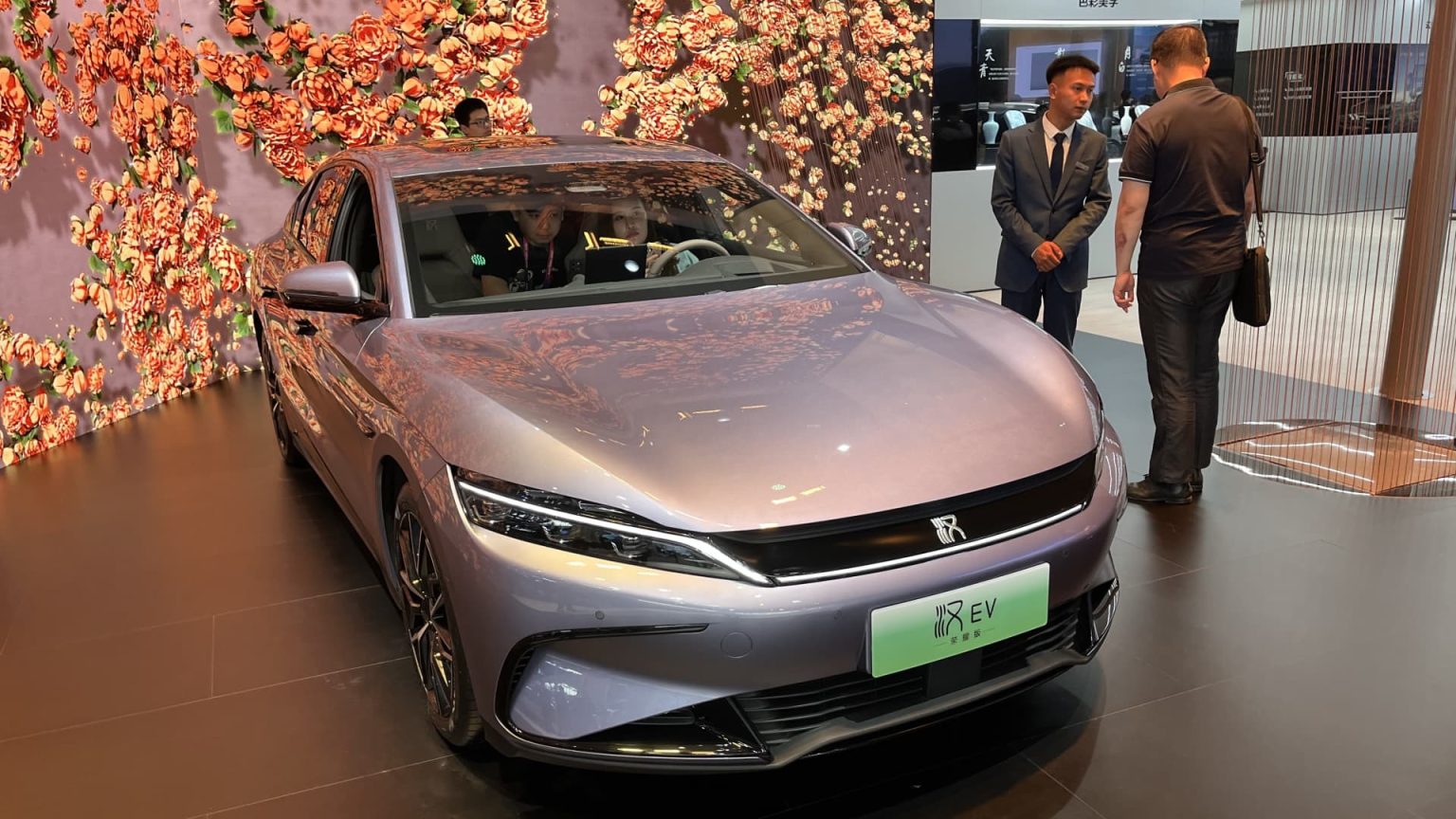Chinese automakers, such as GAC Group, are facing intense competition in the country’s electric car market, which has seen a surge in adoption of battery and hybrid-powered vehicles. An influx of new models has led to a price war, with Tesla also reducing its prices to stay competitive. As Chinese automakers, look abroad for growth, they face challenges in countries concerned about the impact of these cars on local industries. It’s a battle for survival in China’s competitive EV market, and companies must innovate and adapt quickly to stay ahead.
GAC Group, a major player in the Chinese automotive industry, recently cut prices on its cars before the Labor Day holiday in China, leading to a drop in first-quarter sales. To remain competitive, GAC is focusing on partnerships with tech companies like Huawei and investing in research and development. The company has an electric car brand called Aion and is leveraging joint ventures with Honda and Toyota in China. The company’s general manager highlighted the importance of offering quality products to meet consumer needs and maintaining a competitive edge in the long term.
In response to slowing growth in domestic sales of new energy vehicles, GAC is expanding its presence overseas. The company aims to sell 1 million cars abroad, including electric, hybrid, and fuel-powered vehicles. While the company exported about 50,000 cars last year, it is targeting 100,000 vehicles for this year and 500,000 units by 2030. GAC plans to establish subsidiaries in different regions globally, starting with the Middle East and Mexico, with an emphasis on localizing production through joint ventures and technology partnerships.
The internationalization of Chinese automakers like GAC is part of a broader trend that is reshaping the global automotive industry. Overcapacity has historically been a concern in China’s auto industry, but now it is combined with highly competitive vehicles that are attracting global consumer interest. As a result, Chinese EV brands are gaining recognition in markets like the U.S. and Europe, driving demand for Chinese electric cars. Companies like BYD are not only exporting cars but also building factories overseas to meet global demand.
Tech competition is a key focus for Chinese and foreign automakers, with consumers placing high importance on advanced features like driver-assist software. Chinese startups are known for their aggressive approach to tech innovation, often releasing cars with new features that can be updated over the air. While consumers are interested in tech advancements, concerns about driving range persist, leading to continued demand for hybrid vehicles that do not always require charging. Even established automakers like Volkswagen are investing in smart tech to stay competitive.
In response to consumer demand, companies are evolving their product offerings to prioritize features like automatic parking and battery charging. High-end brands like Lotus Technology, now under Geely’s ownership, are investing in robotic chargers and partnering with companies like Nio to offer innovative solutions like battery swapping and charging. This shift towards advanced features and electric vehicles signals a changing landscape in the automotive industry, with Chinese brands gaining momentum and foreign brands navigating complex decisions around energy routes. By staying nimble and focusing on innovation, companies like Lotus aim to capture the shifting preferences of consumers in a rapidly evolving market.


